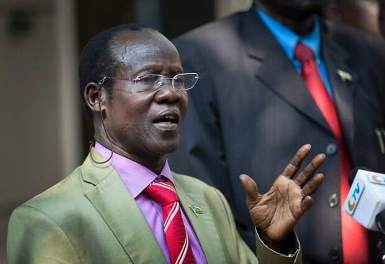South Sudan opposed to dissolution of elected institutions
August 12, 2014 (JUBA) – The South Sudanese government said Tuesday that it will oppose any proposal to dissolve elected institutions on grounds that it will set a “bad precedent”.

“Dissolving elected institutions violate the constitution and that is a red line for us and that there would be enormous consequences if we start working against the constitution instead of upholding it,” he added.
Igga, formerly the speaker of the legislative assembly, urged members of the United Nations and the international community to take clear positions on how the country’s conflict can be resolved.
Foreign affairs minister, Barnaba Marial equally echoed the vice-president’s stance, saying dissolution of elected institutions would compromise constitutional and democratic principles.
“As the government, we welcomed the visit of the Security Council. This visit will help the world understand the dynamic of this conflict with firsthand knowledge. They will have the opportunity to visit all parts of the country. They will visit those affected and those which have not experienced the violence. We would facilitate their movement so that they get the real information”, he told reporters Tuesday.
Marial said the world should support his government in its quest to resolve political differences with the opposition in order to bring lasting peace and stability to the country.
“We would like the United Nations, the African Union and the GAD member countries to clearly come out and take strong position with the government to end this conflict. We want the peace process to proceed in order to end the current humanitarian crisis in the country”, he said
The South Sudanese conflict, which started late last year, has killed thousand and displaced over a million people internally and into neighbouring Uganda, Kenya, Sudan and Ethiopia.
(ST)
